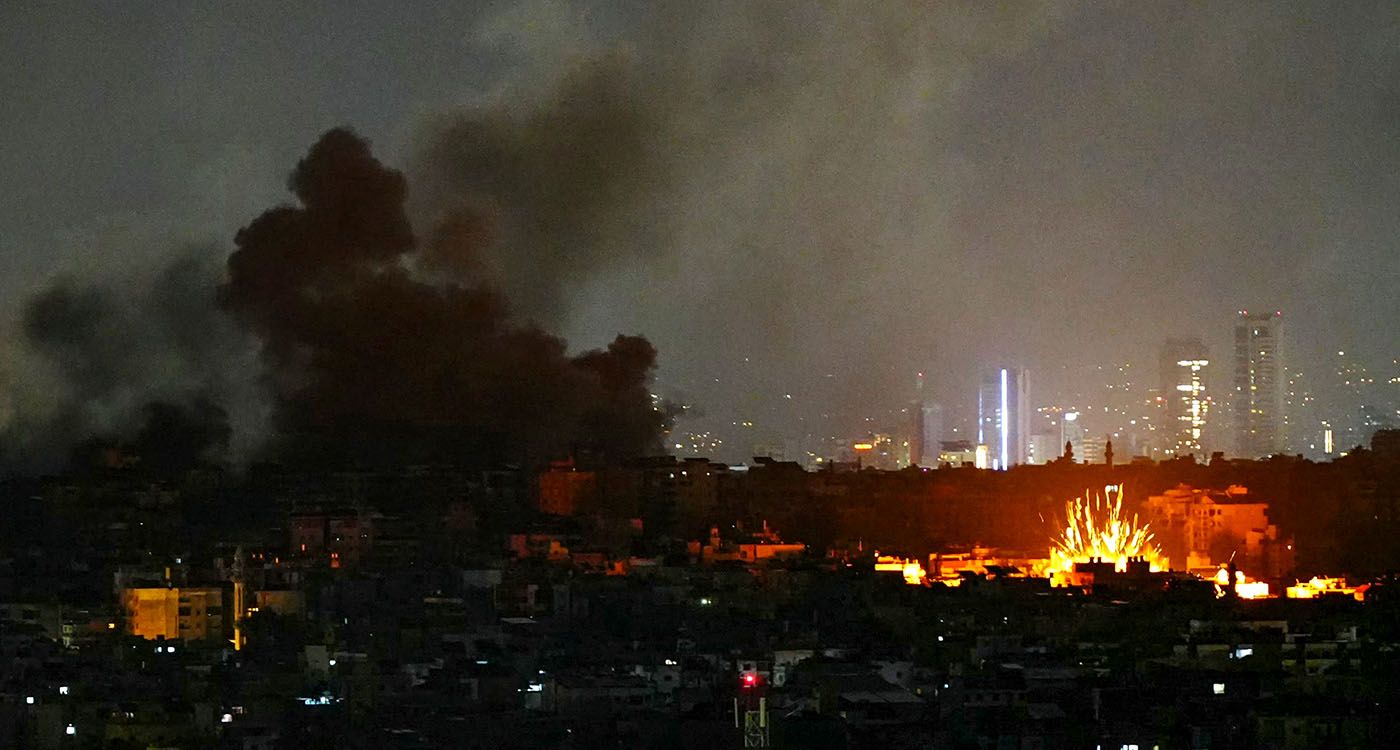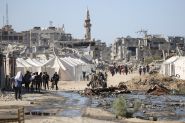- Home
- Middle East
- Does the War Have an End in Sight?

©AFP
The delusions of truce, however legitimate they might be, have no chance of materializing. The strategic realignments have changed the plot and the narrative of the ongoing wars: Israel is not in the business of securing its northern and southern borders anymore. The new axis of war is based on changing a region's military and political dynamics with no strategic and political moorings. The notion of security is henceforth predicated on systemic geostrategic changes to put an end to the hazards of a disheveled geopolitical order and the state of structural instability.
However monumental the current undertaking, Israelis are committed to pursuing it despite their political and ideological differences. The systematic destruction of the operational platforms of Hamas and Hezbollah is the prelude to the eradication of the integrated battlefields advocated by the Islamic Republic of Iran and marks the end of the era of Iranian regional hegemony. The annihilation of the proxies inevitably leads to the ultimate confrontation with the Iranian regime and the challenge of the Islamist narrative and its attendant myths. What is at stake are the future geopolitical equilibriums, the ideological narratives and the scope of military strategizing.
The Iranian regime seems unyielding in pursuing its regional strategy and the militarization of its nuclear infrastructure, and the de-escalation course is demoted and relegated to irrelevance. The cracks of the decaying regime and the proliferation of its inner vulnerabilities account largely for the glaring contradictions, the strengthening of the competing power centers, and the growing inability of the jurisconsult to federate and adjudicate the differences among the various factions. The inevitable war between Israel and Iran is supplemented by the systemic entropies and the bitter rivalries within the Serail. The rising political and military dynamics have created a congenial environment and put into traction a new revolutionary upheaval. The erratic behavior of this bloody autocracy traces back to the faltering fortunes, the systemic entropies and the energized political feuds within a dying totalitarian dystopia.
The chances of a working truce in Lebanon are dwindling by the day, since Hezbollah is unwilling to concede defeat and is adamant about pursuing a hazardous war whose catastrophic effects are no longer to be demonstrated. The ideological blinders, the egregious strategic miscalculations and the obdurate state of denial are damning the negotiations. By refusing to admit defeat and acting on the very basis of this awareness, Hezbollah is favoring the scenarios of total war and its ruinous consequences, as amply showcased in the latest blitzkrieg. The unrealistic demands formulated during the US-arbitrated round of talks have repeatedly derailed the mediations and are unlikely to relent. In the meantime, humanitarian tragedies are cumulating and the likelihood of reasonable accommodation is receding.
The situation in Gaza is a replica of the Lebanese theater and reproduces the same state of mind whereby the military objectives are readily dissociated from the prospects of diplomacy and conflict resolution negotiations. The nihilistic overtones of Hamas' rules of engagement and the foreclosed political horizon have altogether transformed Gaza into a killing field where absurdity prevails and forestalls the chances of international diplomacy. The moral depravity of the human shield strategy testifies to its criminal nature and its political redundancy. When the question of the relationships between military strategizing and political objectives is overlooked, and the logic of the battlefield is self-referential and shorn from political finalities, the war mutates into a slaughterhouse and wanton violence.
The big question to be raised at this stage is how to bring politics into the realm of war and stop the bloodshed. Israelis are determined to change the power politics equation as a prelude to negotiations, whereas the Iranian-mentored strategy of the integrated battlefields has turned into a self-defeating undertaking and a recipe for cascading disasters and nihilistic violence. The destruction of the proxy's military leverage is essential if we are to oversee a breakthrough that makes negotiations possible and puts an end to the cycles of violence.
Read more




Comments